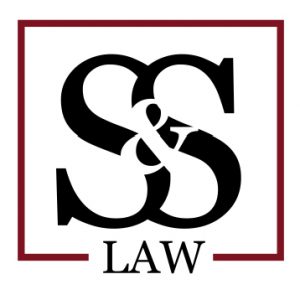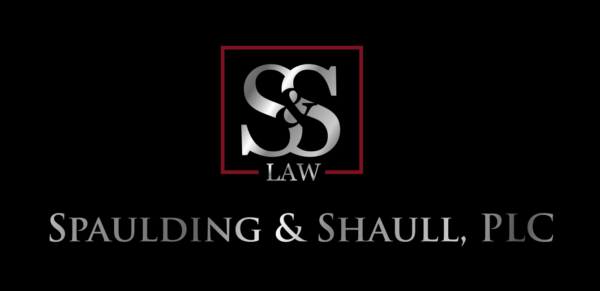Employment Law
Process & Tips
Employees have a number of protections and rights under both Federal and Iowa law. Our firm has handled a variety of employment matters for our clients such as nonpayment of wages, accommodations at work for a client’s disability, retaliatory discharge for filing a workers’ compensation claim, and claims dealing with workplace discrimination and harassment. If you believe you have been unfairly treated by your employer, contact our firm to schedule your free consultation.
- An employer makes a hiring decision based on a person’s race, color, religion, pregnancy, sex, disability, military status, ancestry, or national origin
- An employer fires someone based on a person’s race, color, religion, pregnancy, sex, disability, military status, ancestry, or national origin
- An employer takes adverse action based on a person’s race, color, religion, pregnancy, sex, disability, military status, ancestry, or national origin
- Disparaging comments indicating bias toward a particular group
- Less favorable treatment than similarly-situated employees outside a protected classification
- False or inconsistent reasons given by an employer for a particular employment decision
- An employer’s failure to follow its own policies and procedures
- Retaliation for filing a worker’s compensation claim
Please fill out our short contact form, or call our office if you have questions, need advice, or would like to set up a free consultation. We will respond as soon as possible to discuss how we can help with your case.
We take cases on a contingency fee basis, which means that our attorney fee is a percentage of the recovery or judgment from your case. No fee is owed to us if no recovery or judgement is obtained. If administrative costs come up during your case, we advance the case expenses. At the conclusion of your case, Spaulding & Shaull will be reimbursed for those advanced case expenses.
Employment Law Overview
Title VII of the Federal Civil Rights Act of 1964 and The Iowa Civil Rights Act of 1965 prohibits discrimination based on race, color, religion, sex, national origin, age, pregnancy, and disability. Additionally, Iowa law prohibits discrimination based on an individual’s gender preference or sexual orientation. These are considered “protected classes” under federal and Iowa law. If your employer has discriminated, harassed, or retaliated against you because of one or more of these protected classes, you may have a claim.
Discrimination: Discrimination by an employer can occur in several different ways. An employer cannot make decisions regarding discipline, job assignments, promotion, or discharge based on an employee’s protected class. It is also illegal for an employer to discriminate against an employee in the payment of wages or employee benefits based on an employee’s protected class. For further information regarding unlawful employment discrimination, please visit the Iowa Civil Rights Commission website (icrc.iowa.gov) or the EEOC website (eeoc.gov).
Harassment: It is illegal for an employer to harass an employee based on an employee’s protected class. Harassment can occur in several different ways such as slurs, graffiti, offensive or derogatory comments, or other verbal or physical conduct. Sexual harassment includes unwelcome sexual advances, requests for sexual favors, and other conduct that is sexual in nature. Although simple teasing, offhand comments, or isolated incidents are not prohibited by law, it can become unlawful harassment if it is so frequent or severe that it creates a hostile or offensive work environment or if it results in an adverse employment action (i.e., termination, demotion, suspension, discipline, reduction in pay, etc.).
Retaliation: It is unlawful for an employer to harass an employee because they have complained about discrimination, filed a complaint of discrimination, or participated in an employment discrimination investigation or lawsuit.
Wrongful Termination in Violation of Public Policy
Iowa law provides that it is unlawful for an employer to terminate an employee in violation of “public policy.” Iowa has consistently held that an employee cannot be discharged in retaliation for enforcing a statutory rights, such as filing a claim for workers’ compensation or unemployment benefits.
Iowa has also recognized wrongful termination claims where an employee refused to participate in an illegal activity: (1) where an employee was terminated because he intended to testify truthfully in a legal proceeding, rather than perjuring himself – Fitzgerald v. Salsbury Chemical, Inc., 613 N.W.2d 275 (Iowa 2000); and (2) where an employee refused to work in an understaffed room at a daycare center which violated administrative rules issued by the Iowa Department of Human Services – Jasper v. H. Nizam, Inc., 764 N.W.2d 751 (Iowa 2009).
Finally, Iowa has recognized wrongful termination in violation of public policy claims for whistleblowing. In Tullis v. Merrill, 584 N.W.2d 236 (Iowa 1998), an employee complained internally to his employer that the company was not paying his insurance benefits as part of his promised wages. The employee claimed this failure to pay wages violated Iowa law, and he was subsequently terminated by the employer. In Tullis, the Iowa Supreme Court recognized that public policy prohibited Tullis’s firing for making a wage claim, and the internal complaint satisfied this public policy. In Teachout v. Forest City Community School Dist., 584 N.W.2d 296 (Iowa 1998), the Iowa Supreme Court recognized a wrongful termination claim in violation of public policy where a teacher’s assistant was terminated after she reported alleged child abuse to her supervising teacher and orally to the Department of Human Services.
The Iowa Wage Payment Collection Law
The purpose of the Iowa Wage Payment Collection law is to facilitate the collection of wages owed to employees after they leave a job. “Wages” are defined by Iowa law as “Labor or services rendered by an employee, whether determined on a time, task, piece, commission, or other basis of calculation,” as well as “vacation, holiday, sick leave, and severance payments which are due an employee under an agreement with the employer or under a policy of the employer.” Under certain circumstances, bonuses can also be considered wages. An employer who fails to pay wages to an employee as required under Iowa law is liable to the employee for the unpaid wages, court costs, and attorney fees incurred in the recovery of the unpaid wages. If your employer has failed to pay you wages that are owed, you may have a claim.
Drug Testing
Iowa law provides that employers may conduct drug or alcohol testing of current or prospective employees pursuant to an employer’s written policy. However, if an employer fails to comply with the requirements of Iowa Code § 730.5, an employee may bring a civil action against the employer seeking “affirmative relief including reinstatement or hiring, with or without back pay, or any other equitable relief as the court deems appropriate including attorney fees and court costs.” Iowa Code § 730.5(15)(a)(1).
FMLA Violations
The Family and Medical Leave Act (FMLA) applies to private employers with 50 or more employees. Note, an employee is not eligible for FMLA leave until he or she has been employed for 12 months. Pursuant to the FMLA, an eligible employee may take up to 12 workweeks of unpaid leave during any 12-month period for one or more of the following reasons:
- The birth of a child, and to care for the newborn child;
- The placement of a child with the employee through adoption or foster care, and to care for the child;
- To care for the employee’s spouse, son, daughter, or parent with a serious health condition; and
- Because a serious health condition makes the employee unable to perform one or more of the essential functions of his or her job. (According to the FMLA, a “serious health condition” is “an illness, injury, impairment, or physical or mental condition that involves . . . [i]npatient care . . . or [c]ontinuing treatment by a health care provider.”)
During FMLA leave, an employer must maintain the employee’s existing level of coverage under a group health plan. At the end of FMLA leave, an employer must take an employee back into the same or an equivalent job.
Employers are prohibited from interfering with, restraining, or denying an employee’s exercise of FMLA rights. Moreover, an employer cannot retaliate against an employee for exercising his or her rights under the FMLA. Furthermore, employers must not discriminate on the basis of race, color, religion, sex, or national origin when they provide FMLA leave.
You may have a claim against your employer if they have failed to comply with the requirements of the FMLA as outlined above.
Not sure if you have a employment law claim?
Leave us a note and we will get back to you for a free consultation.

